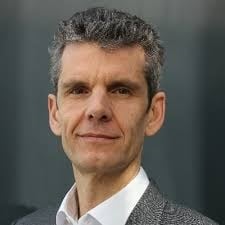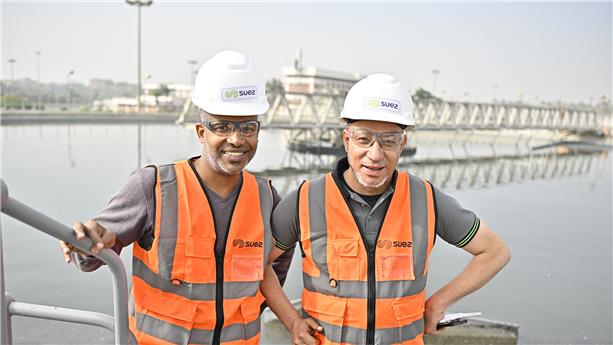How was the AgroParisTech founded? What were its objectives?

The Chair has been training department managers and directors from all four continents for over ten years. The programme aims to help them take up the challenge of providing clean water and sanitation for all (SDG 6). It is an outstanding programme that addresses the issues faced by managers working in situations marked by the scarcity of water as a resource, demographic pressure, climate change, urban fragmentation, and the complexity of technical, financial, political and societal challenges, not to mention the 2020 pandemic which highlighted how essential it is for the most vulnerable in our society to have access to water.
SUEZ and the Fondation SUEZ have just signed a new four-year partnership for the Chair with AgroParisTech, alongside the French Development Agency*. What is the aim of this commitment?
We are committed to access to clean water and sanitation for all! With AgroParisTech, we are convinced that the future of water depends on building our skills and on a long-term vision of services. The new partnership is based on the ambition to offer a world-class Chair, already recognised as such through its involvement in Montpellier's Water Centre of Excellence, recognised by UNESCO.
Do you see it as a new partnership rather than a renewal?
It is clear that the Chair is entering a new dimension. Partnerships have been signed with organisations in the south, in Senegal and Rabat for French-speaking participants, and in Ghana and Singapore for English speakers. With ESSEC Business School joining the academic partnership this year, there will be a stronger and more diverse managerial dimension to teaching, and tomorrow to research. Finally, training is now available in e-learning modules, offering unprecedented international accessibility, as well as providing a solution to pandemic restrictions.
A Chair offering training then, but also research?
The Chair's Scientific Committee, composed of members who are recognised experts in the field of research, focuses its work on analysing economic, political, institutional and managerial conditions, and the governance framework. The Chair aims to boost the progress and transfer of knowledge, by providing a space for dialogue between managers of water and sanitation services, and researchers. The fourth edition of the Chair's "Journées Scientifiques" (scientific days) was held at the beginning of May. Focusing on urban sanitation governance, the event provided the opportunity for participants to share research and more operational knowledge.
This is exactly what characterises the Chair's spirit - a community for sharing knowledge, know-how and social skills. I would like to thank the many SUEZ experts who belong to this community and show their commitment to the Chair's students.

 The Chair has been training department managers and directors from all four continents for over ten years. The programme aims to help them take up the challenge of providing clean water and sanitation for all (SDG 6). It is an outstanding programme that addresses the issues faced by managers working in situations marked by the scarcity of water as a resource, demographic pressure, climate change, urban fragmentation, and the complexity of technical, financial, political and societal challenges, not to mention the 2020 pandemic which highlighted how essential it is for the most vulnerable in our society to have access to water.
The Chair has been training department managers and directors from all four continents for over ten years. The programme aims to help them take up the challenge of providing clean water and sanitation for all (SDG 6). It is an outstanding programme that addresses the issues faced by managers working in situations marked by the scarcity of water as a resource, demographic pressure, climate change, urban fragmentation, and the complexity of technical, financial, political and societal challenges, not to mention the 2020 pandemic which highlighted how essential it is for the most vulnerable in our society to have access to water.